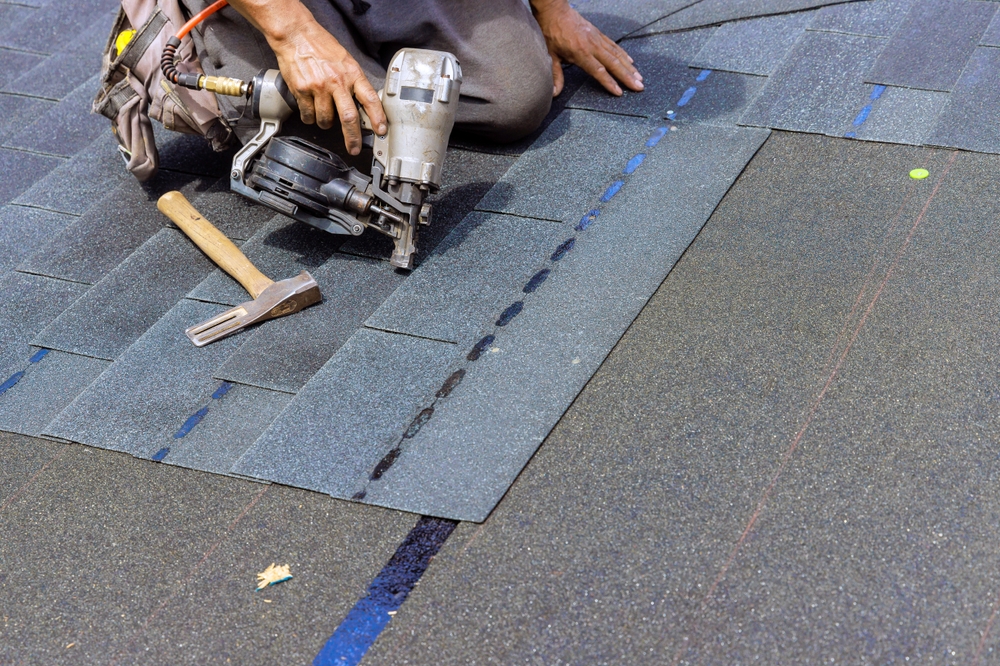For new homeowners in Orlando, ensuring a solid and well-installed roof is one of the most critical aspects of maintaining a safe and comfortable home. The region’s subtropical climate, characterized by intense heat, heavy rainfall, and frequent hurricanes, demands durable and well-constructed roofing. Understanding the roof installation process, the Best Roofing Materials for orlando’s climate, and key preparation steps can help homeowners avoid costly mistakes and ensure a long-lasting, efficient roof.
This guide provides essential tips for new homeowners in Orlando on what to expect during roof installation and how to prepare for a successful project.
2. Choosing the Right Roofing Material
One of the most important decisions in the roof installation process is selecting the appropriate roofing material. Orlando’s climate requires materials that can withstand high temperatures, humidity, and storm damage.
Asphalt Shingles
- One of the most common and affordable roofing materials.
- Available in various colors and styles.
- Offers moderate durability, typically lasting 20-30 years.
- Susceptible to high winds and may require reinforcement.
Metal Roofing
- Highly durable and resistant to wind, fire, and moisture.
- Reflects sunlight, improving energy efficiency.
- Can last 40-70 years with proper maintenance.
- Higher upfront cost compared to asphalt shingles.
Tile Roofing
- Popular in Florida due to its durability and aesthetic appeal.
- Withstands hurricanes, heat, and moisture well.
- Can last over 50 years with proper maintenance.
- Heavier than other materials, requiring reinforced roof structures.
Flat or Low-Slope Roofs
- Common for modern and commercial buildings.
- Requires specialized materials like TPO, EPDM, or modified bitumen.
- Effective water drainage is essential to prevent leaks.
- Needs regular maintenance due to standing water risk.
3. Hiring a Reliable Roofing Contractor
A reputable roofing contractor is essential for a successful installation. Homeowners should take the following steps to ensure they hire the right professional:
- Check Licenses and Insurance: Florida requires roofing contractors to be licensed and insured. Verify credentials through the Florida Department of Business & Professional Regulation (DBPR).
- Read Customer Reviews: Look for testimonials on Google, Yelp, or the Better Business Bureau (BBB).
- Request Multiple Quotes: Get estimates from at least three contractors to compare pricing, materials, and services.
- Ask About Warranties: Reliable contractors offer warranties on both materials and labor.
- Check for Experience with Orlando’s Climate: Choose a contractor familiar with Florida’s weather conditions and building codes.
Also Read: Spotlight on Sustainability: Eco-Friendly Roofing Options Available in Orlando
4. Preparing for the Roof Installation Process
Before roof installation begins, homeowners should take steps to prepare their property and minimize disruption.
Clearing the Area
- Remove outdoor furniture, decorations, and vehicles from the driveway.
- Trim overhanging tree branches to provide access to the roof.
- Cover pools and landscaping to protect against debris.
Preparing the Interior
- Secure fragile items such as wall decor and glassware.
- Expect noise and vibrations throughout the installation.
- Inform neighbors about the project to minimize disturbances.
Understanding the Timeline
- A typical Orlando Commercial Roofing Services installation takes 1-3 days, depending on the size and complexity of the project.
- Weather conditions may cause delays, so schedule accordingly.
5. Roof Installation Process
Removing the Old Roof
- Contractors will strip away old roofing materials to inspect the roof deck.
- Any damaged or rotting wood is replaced before new materials are installed.
Installing Underlayment
- A moisture barrier is applied to protect against leaks.
- Synthetic underlayment is preferred for its durability and water resistance.
Laying Roofing Materials
- Shingles, metal panels, or tiles are carefully arranged and secured.
- Proper ventilation is incorporated to regulate temperature and moisture.
Final Inspection and Cleanup
- Contractors conduct a final quality check for proper installation.
- Any leftover debris and nails are removed from the property.
- Homeowners receive warranty and maintenance instructions.
6. Costs and Financing Options
Roof installation is a significant investment, but understanding the costs and available financing options can help homeowners plan accordingly.
Factors Affecting Cost
- Material Choice: Asphalt shingles are the most affordable, while metal and tile roofs have higher upfront costs.
- Roof Size and Complexity: Larger or more complex roof structures require more labor and materials.
- Permits and Inspections: Local regulations may add to overall costs.
- Labor Fees: Hiring experienced contractors may increase labor costs but ensures quality work.
Financing Options
- Home Improvement Loans: Many banks offer loans specifically for roofing projects.
- Insurance Claims: If roof damage is caused by storms, homeowners’ insurance may cover some costs.
- Government Assistance: Florida offers energy-efficient roofing incentives for homeowners.
- Payment Plans: Many roofing companies provide financing options with monthly payments.
7. Maintaining Your New Roof
A well-maintained Roof Installers Orlando ensures longevity and prevents costly repairs. Orlando homeowners should adopt a proactive maintenance routine.
Regular Inspections
- Inspect the roof twice a year, especially after hurricane season.
- Look for signs of wear, such as cracked shingles or leaks.
Cleaning and Debris Removal
- Remove leaves, branches, and debris that may clog gutters and drains.
- Schedule professional cleaning for algae or moss buildup.
Addressing Repairs Quickly
- Fix minor issues before they turn into major problems.
- Ensure proper attic insulation to prevent moisture damage.
Preparing for Hurricanes
- Reinforce shingles or tiles with hurricane straps.
- Install impact-resistant materials if living in high-risk areas.
- Consider wind mitigation measures for insurance discounts.
8. Conclusion
For new homeowners in Orlando, roof installation is an essential investment that requires careful planning and informed decisions. Choosing the right roofing materials, hiring a reputable contractor, and preparing for the installation process can ensure a durable and efficient roof suited for Florida’s climate.
Regular maintenance is key to extending the lifespan of the roof and protecting the home from Orlando’s challenging weather conditions. By staying proactive, homeowners can enjoy peace of mind knowing their roof is built to withstand the elements for years to come.



